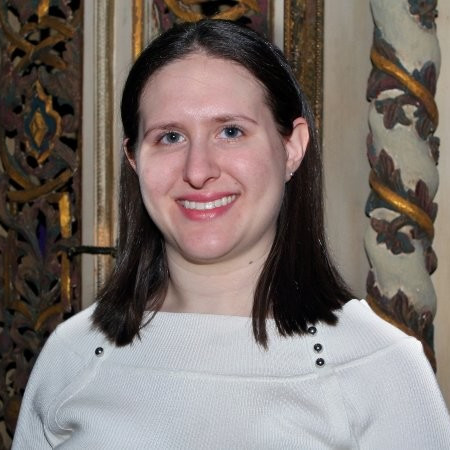One of my favorite quips about Passover is that it’s the holiday on which everything needs to be “just right.”
Are the matzah balls too dense? The whole meal is ruined! Did the littlest one not find the afikomen but their big sibling did? Meltdown! Are the songs and melodies different from the ones you grew up with? Cue embarrassment. There is so much packed into one evening that it can feel overwhelming and sometimes impossible to relax and enjoy the experience.
Let’s turn to a grounding technique I’ve learned for when we’re feeling out of control. A grounding technique helps us reconnect with what is going on right here and now amid any chaos, big feelings or dysregulation. The procedure goes: Identify five things you can see, four things you can touch, three things you can hear, two things you can smell and one thing you can taste. It’s like a counting mnemonic, very much in the spirit of our Passover traditions.
Let’s pretend it’s right before the Seder meal. You’re a gracious guest at someone else’s home, and it’s filled with hustle and bustle. Someone is kvetching, “When will we eat?” (Nevermind the fact that you're hungry, too!) The kids are running around playing with toys brought up from the basement that almost poke someone’s eye out. The guest who brought a key dish has yet to appear, and the smells from the kitchen are enticing. I’m feeling overwhelmed — are you?
Let’s start our journey together:
What are five things we can see? A finely set table, bright green parsley, cups for wine or grape juice, a well-loved haggadah at every place and a pile of matzah in the middle of the table. Everything looks different from the everyday, even if you’ve never been to this place before. The fine china is on the table along with a cup for Elijah. Cloth napkins adorn each setting along with an extra small plate for all the Seder traditions. Cups of salt water and a roasted bone seem right in place on this night, but not any other. This begets the question of the evening, “Why is this night different from all other nights?” We see that things are different.
What four things can we touch? A fancy cloth napkin, matzah crumbles on the tablecloth, the pages of the well-loved haggadah, the pillow on which we recline. We are instructed to dip not once but twice. We put down the fancy silver utensils, polished for the occasion, and use our bare (but recently washed) hands. Parsley goes into salt water, and maror into charoset. Matzah crumbles between our fingers as we seek to break off just the right size. We feel things that are different.
What are three things can we hear? The clanking of dishes in the kitchen, the voice of the Seder leader reading aloud, and the warbling voice of the child reciting the four questions. Jewish traditions teaches us in one of the earliest descriptions of the Passover Seder that the Seder leader is to respond to inquiries about the evening by expounding (doreish) — not lecturing, not informing, but going into detail, describing our people’s journey not by reading dryly from a historical manuscript, but recounting the tale replete with song, hand motions, physical symbols at which to point, and involving others’ voices along the way. We hear different sounds.
What two things can we smell? The warmth of matzah ball soup or the distinctive aroma of gefilte fish. Smells can transport us from where we are to a place in our past. The right combination of spices for the brisket or charoset with just the right amount of sugary wine can bring us right back to childhood. We smell different smells.
What can we taste? That never-changing taste of matzah, again this year. A tradition in some circles teaches that we do not consume matzah during the first part of the month of Nissan, perhaps so that the first bite is more enjoyable. We will revisit this taste day after day for the duration of the holiday, seemingly swimming in it until it truly feels like the bread of affliction. We taste different tastes.
This Pesach, I invite you to spend a moment with each of your senses to bring you back to a feeling of calm throughout the holiday.
Rabbi Monica Kleinman serves as the Assistant Director of North American Programs at the Pardes Institute of Jewish Studies, as well as the Rabbinic Consultant for Sasone. She lives in Overland Park with her husband, Rabbi Jon Kleinman, four-year-old son Jacob and the family beagle who loves cleaning up Passover crumbs.



